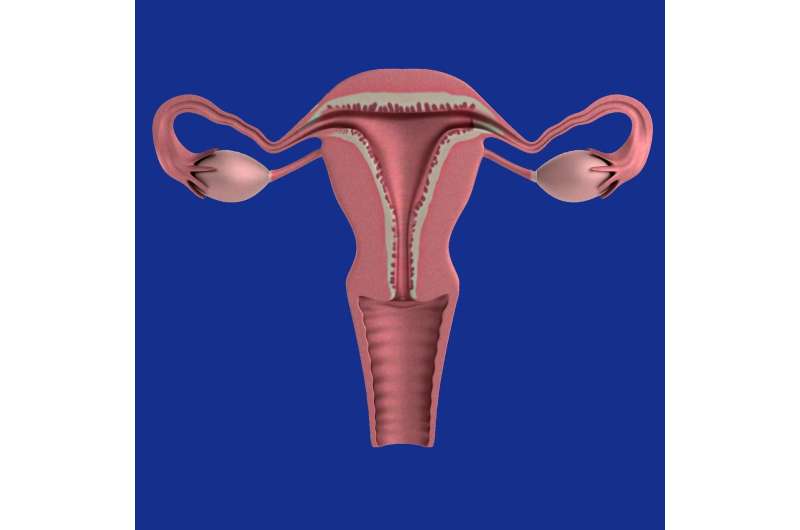
Polycystic ovary syndrome (PCOS) is a common hormone disorder in women. Studies have shown that the change in hormones is accompanied by variations in immunological B cells. Researchers at Karolinska Institutet have now established that the syndrome is not caused by B cells, the role of which remains unclear. The study is published in eLife.
Polycystic ovary syndrome (PCOS) affects 10%–15% of women of fertile age and is linked to irregular ovulation and menstruation, pregnancy complications, and insulin resistance, all of which are worsened by being overweight. The incidence of PCOS increases with rising body mass index, and in women with severe obesity, it is around 25%. While the root cause of the condition is unknown, a driver is a surplus of androgens (male hormones).
A recent study has shown that women with PCOS have a higher number of B cells in their blood, and those researchers proposed that these B cells contribute to the development of PCOS through the production of autoimmune antibodies.
“We’ve now examined how B cells affect the development of PCOS with the goal to find new ways of treating the conditions,” says the study’s last author Elisabet Stener-Victorin, research group leader for reproductive endocrinology and metabolism at the Department of physiology and pharmacology at Karolinska Institutet.
First, blood from women with PCOS was examined and showed abnormal variations in the frequency of different populations of B cells compared to healthy women. Among these were the so-called double negative B cells, a heterogeneous cluster, where some have been described as poised to develop autoimmune functions.
To study whether B cells may cause PCOS, the researchers transferred antibodies from women with PCOS to mice to see if they developed the syndrome. While this proved not to be the case, they did put on weight.
Mice unaffected by B cells
The next step was to transfer B cells from PCOS-like mice (induced by continuous exposure to androgens) to mice lacking B cells to test the hypothesis that B cells drive the development of the disease. However, the recipient mice were unaffected by this transfer.
To see if B cells play an essential role in the development of PCOS, mice lacking B cells were exposed to androgens. These mice were not protected as expected, but developed the same characteristics as normal mice acquire when exposed to androgens.
Finally, androgen exposed PCOS-like mice displayed altered B cell frequencies, as women with PCOS, and simultaneous treatment with a drug that blocks androgen receptors, prevents these alterations of B cells in both blood and tissues, such as ovaries and endometrium.
The researchers conclude that androgens are necessary for the condition to form, but not B cells, the role of which remains unclear.
“B cells are clearly affected in the syndrome, which could contribute to a higher susceptibility to some comorbidities, but they don’t cause PCOS,” says Sara Torstensson, Ph.D. student at the Department of Physiology and Pharmacology, at Karolinska Institutet and and shared first author.
“We are now studying how other immune cells are affected and how this influences reproductive and metabolic function in PCOS,” says Angelo Ascani, guest Ph.D. student at Graz University, Austria and also first author.
More information:
Angelo Ascani et al, The role of B cells in immune cell activation in polycystic ovary syndrome, eLife (2023). DOI: 10.7554/eLife.86454
Journal information:
eLife
Source: Read Full Article


